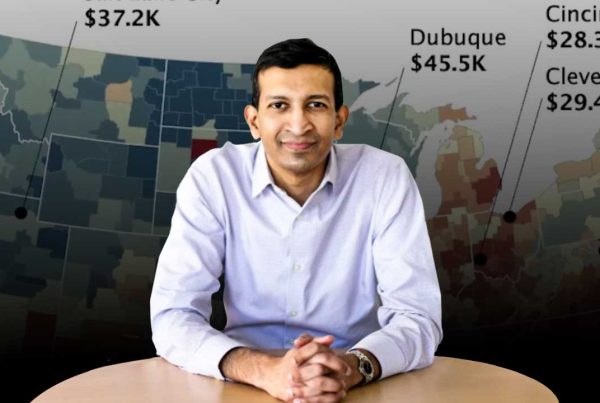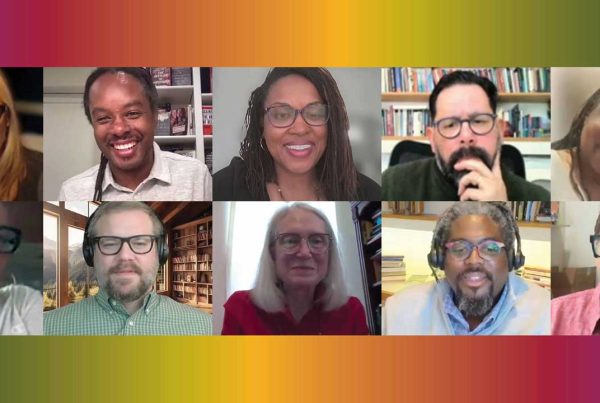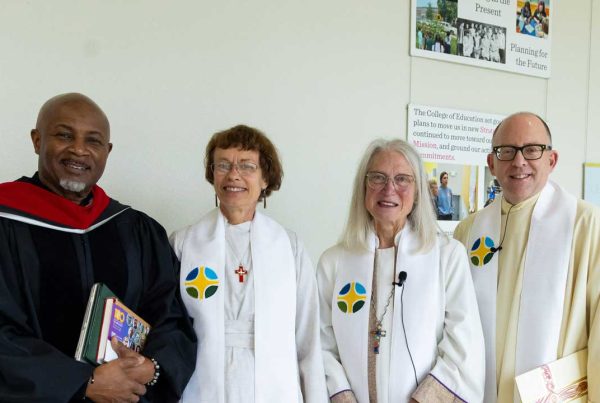Sobering. Terrifying. Demoralizing. These are just a few of the words we could use to describe the recent events in the United States. On August 5th, CBS News reported that we have had 255 massacres so far in 2019, with 5 happening within 8 days of that report.
Hope that our leaders will be compelled to take decisive action is fragile at best. We have been in similar spaces far too many times, hoping that any one of the brutal murders that have taken place in our schools, religious buildings, army bases, malls, parks, theatres, workplaces and streets would have been enough to convince the nation that we are allowing our fears, ignorance, prejudices, and violence to destroy us. Furthermore, instead of facing the roots of our brokenness as a country, we tend to blame individuals. We have refused to understand or acknowledge our communal problem.
A perfect example of this is the tendency to blame mass shootings and gun violence on mental illness. Research is clear that this claim is not only wrong but also harmful. It increases stigma for the more than 46 million people in the US who have been given a mental health diagnosis at one point or another. Research shows that only about 1% of all violent acts against strangers are committed by people diagnosed with serious mental illness using a firearm (Gun Violence and Mental Illness, American Psychiatric Association, 2016). The number is even less for mass shootings. A study released by the FBI in 2018 on the characteristics of 63 mass shooters between 2000 and 2013 makes clear that mental illness cannot be blamed as the cause of mass shootings. The only clearly established link between gun violence and mental illness is associated with suicide. Most people taking their lives suffer from significant emotional difficulties. Over 50% of the more than 47,000 annual suicides involve a firearm.
Most mass shooters in the US, research indicates, feel aggrieved by social rejection, are extremely angry, and harbor violent revenge fantasies often tied to desperate homicidal-suicidal narcissistic ideas such as “I’ll make people recognize me after all.” But they do not typically present with diagnosable mental illness. Among the six identified subgroups of mass shooters are those who direct their rage against a particular group and those who target family members. The El Paso shooter was emboldened by the current political anti-immigrant ideology tied to white supremacy and explicitly targeted Hispanics. The Dayton shooter targeted a location he had visited with his sister that night.
Instead of speaking of mental illness when we try to understand the epidemic of gun violence — with mass shootings as the horrific tip of the iceberg — we should speak of a social psychological and even spiritual sickness. As a society we apparently lack the collective empathy for victims of gun violence (annually more than 14,000 homicide victims killed; nearly 40,000 injured in attempted homicides; more than 20,000 taking their life with a gun). We refuse to imagine as our own the horror and pain people experience in such shootings. If we applied the Golden Rule to gun violence we would live by the motto “do not let happen to others what you do not want to happen to you” and take every possible action to further prevent gun violence from happening. The recent spike in mass shootings targeting racial and ethnic minorities makes it imperative that government leaders and other leaders in influential positions refrain from hateful language targeting particular communities, since such rhetoric will be perceived by potential mass shooters as incitement and sanction to translate their rage into bloodshed.
While we should not stigmatize mental illness for gun violence, we can indeed learn a key step from mental health professionals in gun violence prevention: among the first interventions when faced with clients in danger of suicide or homicide is to ensure they have no access to lethal means. Our country has consistently refused to prevent potential mass shooters from getting their lethal means. A key spiritual reason for this is the fear-based worship of guns that characterizes the US like no other country. The weapons used in the recent El Paso and Dayton attacks, an AK-47 and an AK-15, were created for the military and should have no place in civilian life. They are glamorized by the $52 billion/year gun industry and its lobby, the NRA, in everyday paranoid scenarios as “survival rifles” without which no freedom or safety is possible. A perverse symptom of the brokenness of our country is the fact that the staunchest ideology promoting the worship of guns is white Christian nationalism. In Orwellian fashion, it has turned the message of peace and love Jesus lived and preached on its head. It has done so by infusing the idea of God with fantasies of fear and hate. Instead of seeking safety and freedom in God, Christian nationalism seeks it in guns and country which are conflated with God. Instead of widening the circle of love to everyone, it sanctifies xenophobic, hateful tribalism.
Our collective resolve is required to counter the fear-based worship of guns as God. Faith communities and faith leaders can adopt a three-pronged approach:
- Stand unequivocally on the side of the victims of gun violence by demanding publicly, prophetically, and unceasingly from legislators and business people in their own faith communities who profit from the horror and pain of gun violence to radically and effectively restrict access to military style guns.
- Counter hate against minorities by offering the vision of a beloved community rooted in a radically all-embracing, absolute Love in which no one is left out.
- Offer an antidote to the deep-seated fears of loss of freedom that underlie the hate of xenophobia, racism, and white supremacy by cultivating spiritual practices that engage the deepest existential and relational fears of death and insignificance, and absolutely affirm the value of each person in the eyes of the divine.
Gun violence cannot be overcome by more guns. The core motivating factor of social rejection points to deep-seated fears that ultimately can only be overcome by an equally strong trust. Religious faith at its best offers just that kind of deeply rooted trust.
Dr. David M. Mellott
President
Dr. Leah Gunning Francis
Vice President for Academic Affairs and Dean of the Faculty
Dr. Matthias Beier
Director of Clinical Mental Health Counseling Program





